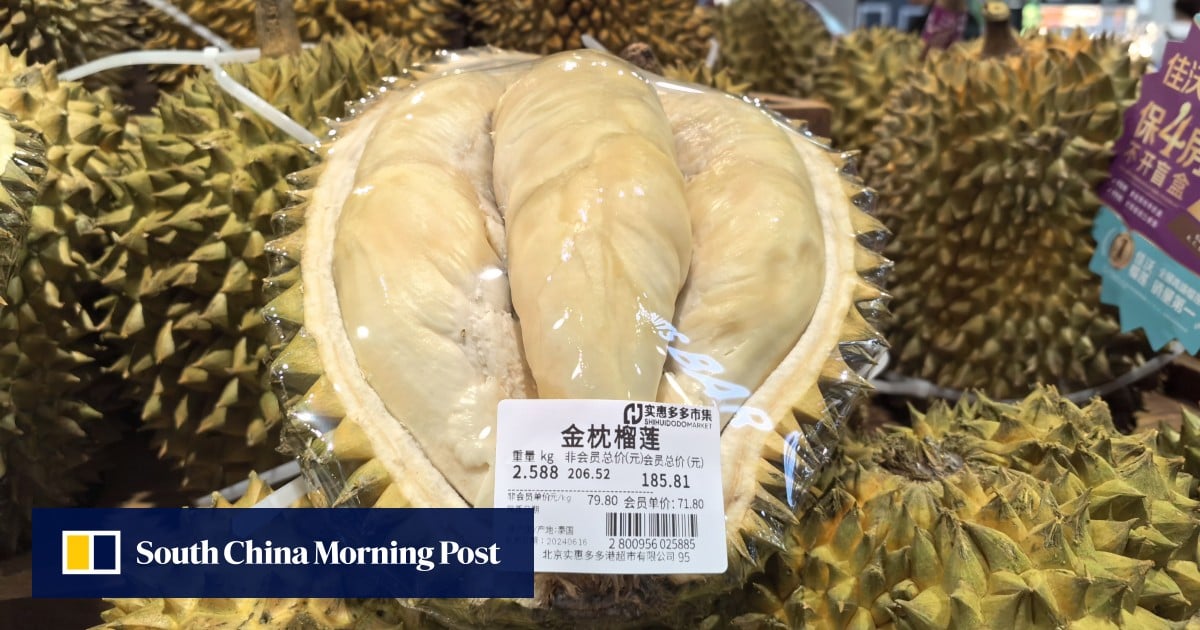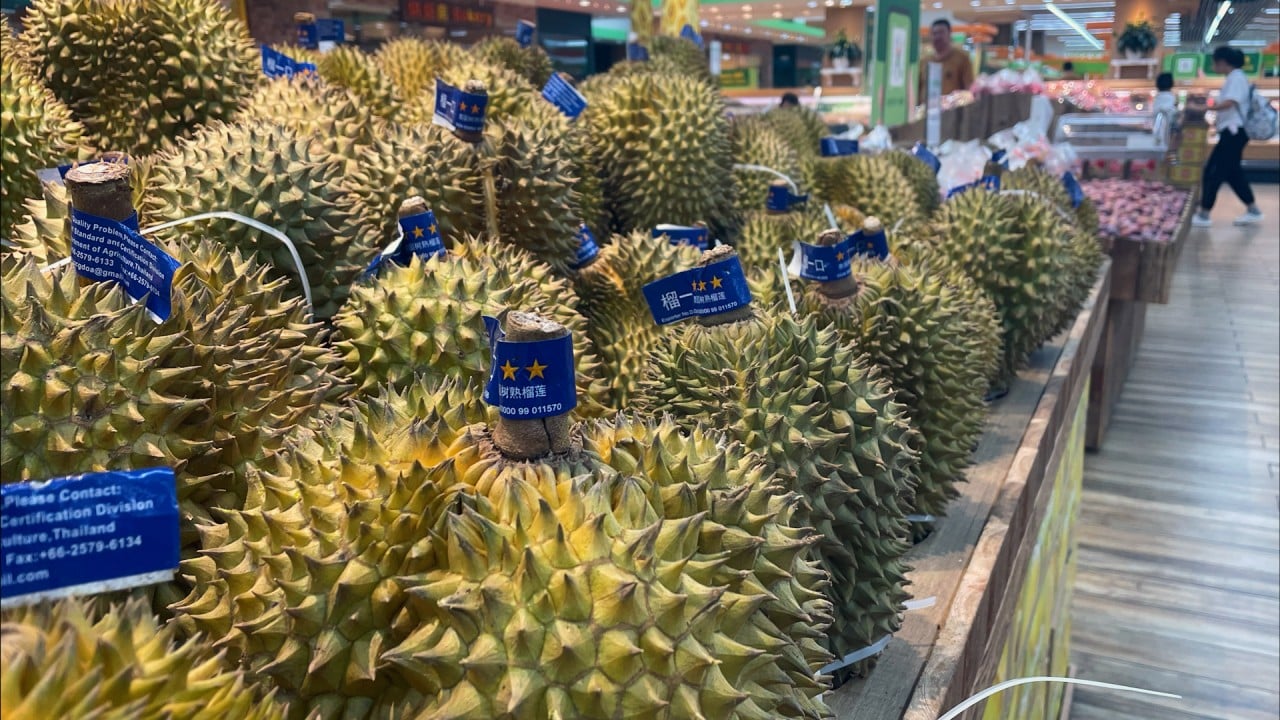“Even though Vietnamese durian growers can benefit from exporting to China, the sudden rise in exports without quality control may harm the prestige of Vietnamese durians in the long term,” said Nguyen Thanh Trung, a political scientist at Fulbright University Vietnam.
Vietnamese growers first received permission to ship durian into China in 2021 and became the country’s second-biggest source of the fruit last year, only trailing Thailand.
China imported 1.4 million tonnes of durian in 2023, and Thailand’s share in US dollar terms dropped from almost 100 per cent in 2021 to about 68 per cent last year.
In the first five months of 2024, Thailand shipped US$2.2 billion worth of durians to China, a year-on-year drop of 2.5 per cent according to Chinese customs data. Vietnam’s exports, meanwhile, surged 61 per cent to a value of US$661.48 million.
The Chinese customs administration urged Vietnamese authorities to learn where the suspended companies had gone wrong, take measures to fix the problems and step up their scrutiny “to prevent related situations from happening again”.
An official from Vietnam’s Ministry of Agriculture and Rural Development, plus two Vietnamese agricultural provinces, issued warnings last year about an oversupply of durians and possible quality problems, the domestic VnExpress International news outlet reported in October.
The ministry’s horticulture head said that when durians are grown in “unsuitable areas”, they produce “low-quality fruits, causing damage to farmers and to the Vietnamese durian brand”, according to the report.
As of April, China’s import price for durians from Thailand was US$5.80 per kilogram according to the customs administration, while Vietnamese durians stood at US$4.22 per kilogram.
A deal signed with China last week will benefit 63,000 Malaysian growers, according to Kuala Lumpur’s government-owned Bernama news agency. China had previously allowed imports of Malaysian durian pulp and paste in 2011, and frozen durian in 2018.
Malaysian growers are likely to meet China’s export standards through “better agricultural practices, leading to higher-quality produce”, said Lim Chin Khee, an adviser with the Durian Academy, an institution that trains Malaysian growers.
Competition from Malaysia may “shock” Vietnamese durian growers into paying “more attention to durian quality than quantity”, Nguyen said.
China’s customs officials, however, indicated in their letter they were keen to move forward on Vietnamese imports.
“The Chinese side wants to increase dialogue and cooperation with your side, appropriately resolve issues that come up in the context of fruit imports to China and protect the healthy development of trade in agricultural products between the two countries,” it read.
Additional reporting by Mia Nulimaimaiti


